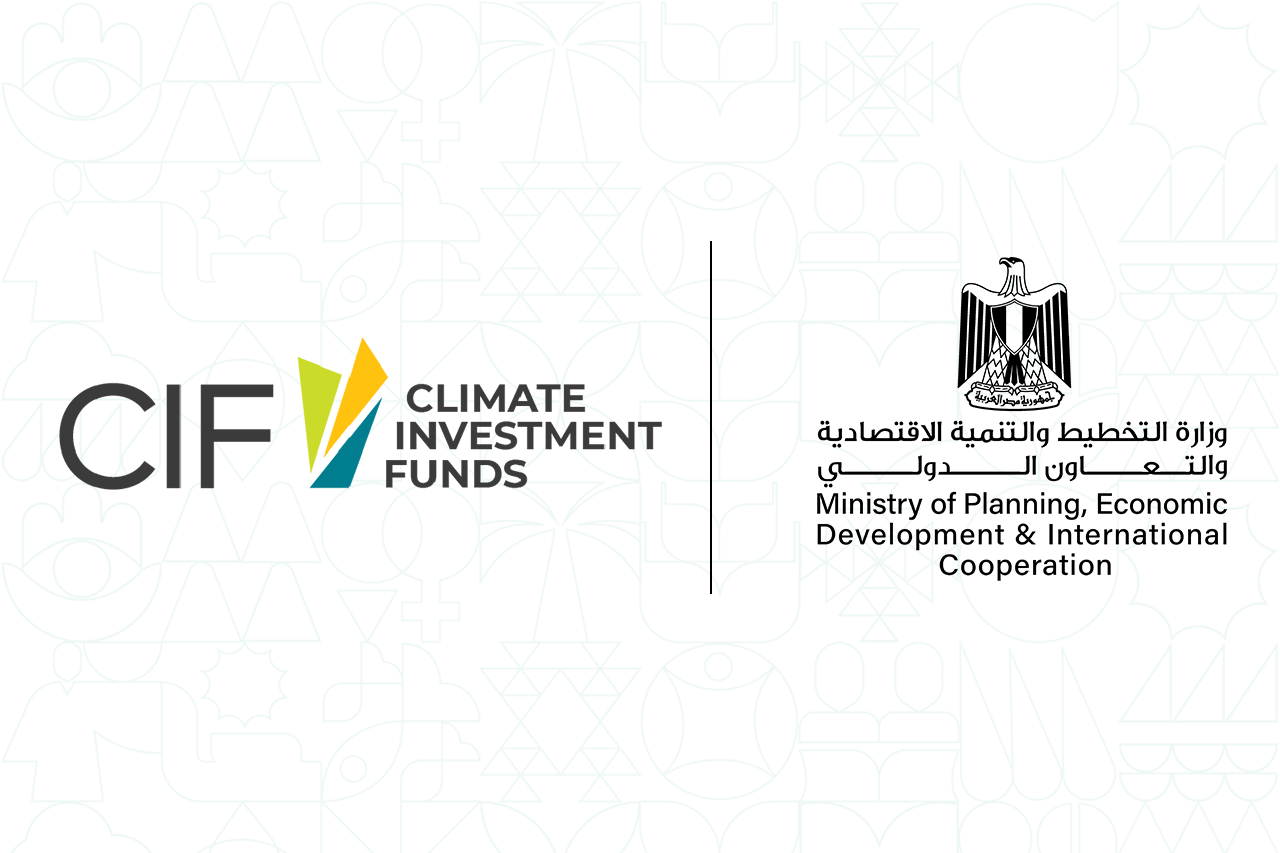Event convenes key national institutions and development banks to shape Egypt’s investment priorities under the US$250 million Industrial Decarbonization Program
With the participation of national institutions and representatives from several multilateral development banks, the Ministry of Planning, Economic Development, and International Cooperation, together with the Climate Investment Funds (CIF), concluded a high-level workshop introducing the Industrial Decarbonization Program and discussing Egypt’s Green Industrial Investment Plan.
The workshop brought together representatives from the Ministries of Industry, Electricity and Renewable Energy, Petroleum and Mineral Resources, and Public Business Sector, as well as the General Authority for Investment and Free Zones (GAFI), the Suez Canal Economic Zone (SCZone), and the Micro, Small and Medium Enterprise Development Agency (MSMEDA). Multilateral development partners in attendance included the European Bank for Reconstruction and Development (EBRD), the International Finance Corporation (IFC), and the African Development Bank (AfDB).
Egypt has been selected among a group of countries eligible to benefit from the Industrial Decarbonization Program, which provides US$250 million in concessional financing to support industrial carbon-reduction projects, in addition to a US$500,000 technical assistance grant dedicated to preparing the program’s investment plan. The program also features complementary financing from partner institutions including the EBRD, the World Bank, IFC, and AfDB.
During the workshop, CIF representatives presented an overview of the Industrial Decarbonization Program, followed by discussions on Egypt’s green industrial investment landscape and the government’s efforts to transition toward a greener, more competitive economy.
In her remarks, H.E. Dr. Rania Al-Mashat, Minister of Planning, Economic Development, and International Cooperation, emphasized that the workshop marks an important step in Egypt’s efforts to build a more competitive and lower-carbon industrial future. She affirmed that the active participation of national and international partners is essential to shaping the program’s priorities and direction.
H.E. Al-Mashat noted that the global economy is undergoing a rapid shift toward more sustainable industrial systems. She highlighted international developments—such as the European Union’s Carbon Border Adjustment Mechanism (CBAM), which targets a 55% emissions reduction by 2030, 90% by 2040, and full carbon neutrality by 2050—and stressed their direct implications for countries engaged in global trade. These shifts, she stated, require swift preparation and enhanced industrial competitiveness.
The Minister underscored that transitioning to green and sustainable industrial development is a central pillar of Egypt’s National Climate Change Strategy 2050 and an integral component of the country’s broader economic and social development agenda. She noted that aligning Egyptian industry with global trends is essential and is being achieved through close cooperation with development partners.
H.E. Al-Mashat added that the Egyptian government places significant importance on the industrial sector, as reflected in the establishment of a dedicated ministerial group for industrial development. This effort aims to increase the sector’s contribution to economic growth—currently around 15%—and to enhance export competitiveness and domestic production.
Reviewing recent macroeconomic indicators, the Minister stated that the Egyptian economy continues to record positive growth rates. The fourth quarter of FY 2024/2025 witnessed 5% GDP growth, driven by strong performance in non-oil manufacturing, which expanded by 18.8% during the quarter and 14.7% over the year, contributing 1.7 percentage points to overall growth.
She emphasized that Egypt’s selection as one of only seven countries included in the program reflects strong international confidence in the country’s national strategies and commitment to climate action. It also represents a significant step toward strengthening Egypt’s global competitiveness and attracting climate-related investments.
H.E. Al-Mashat concluded by affirming that the workshop demonstrates the central role played by the Ministry of Planning, Economic Development, and International Cooperation in collaborating with international development partners to support industrial development. This includes mobilizing concessional and innovative financing tools, providing technical and advisory support, and preparing diagnostic reports and sectoral studies essential to advancing Egypt’s industrial transformation.
